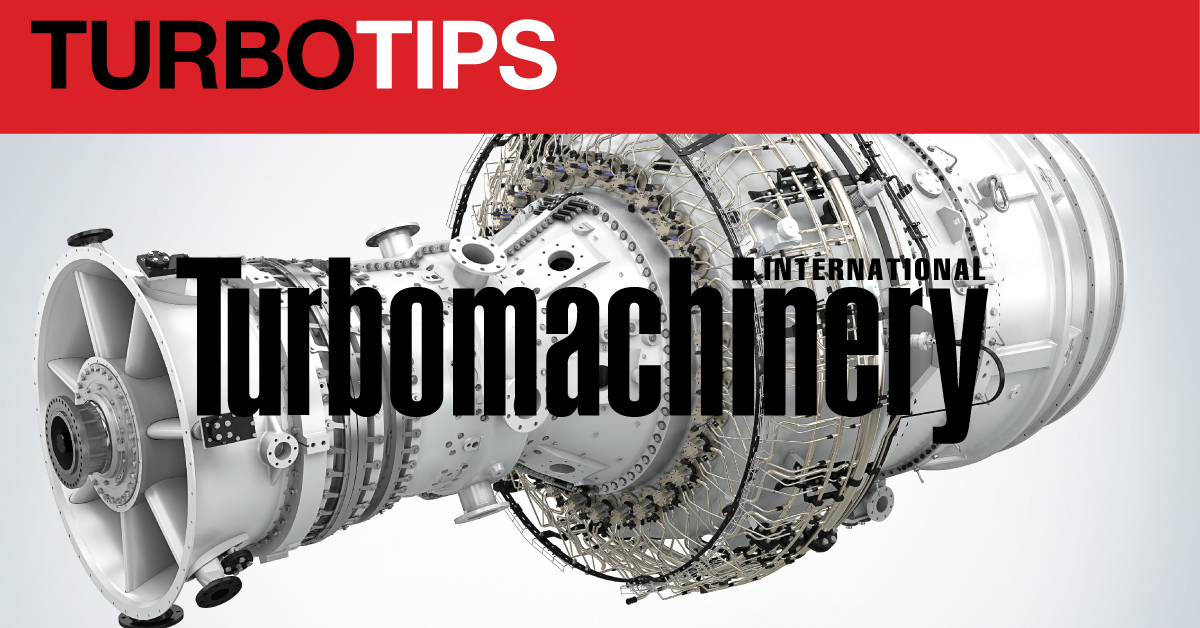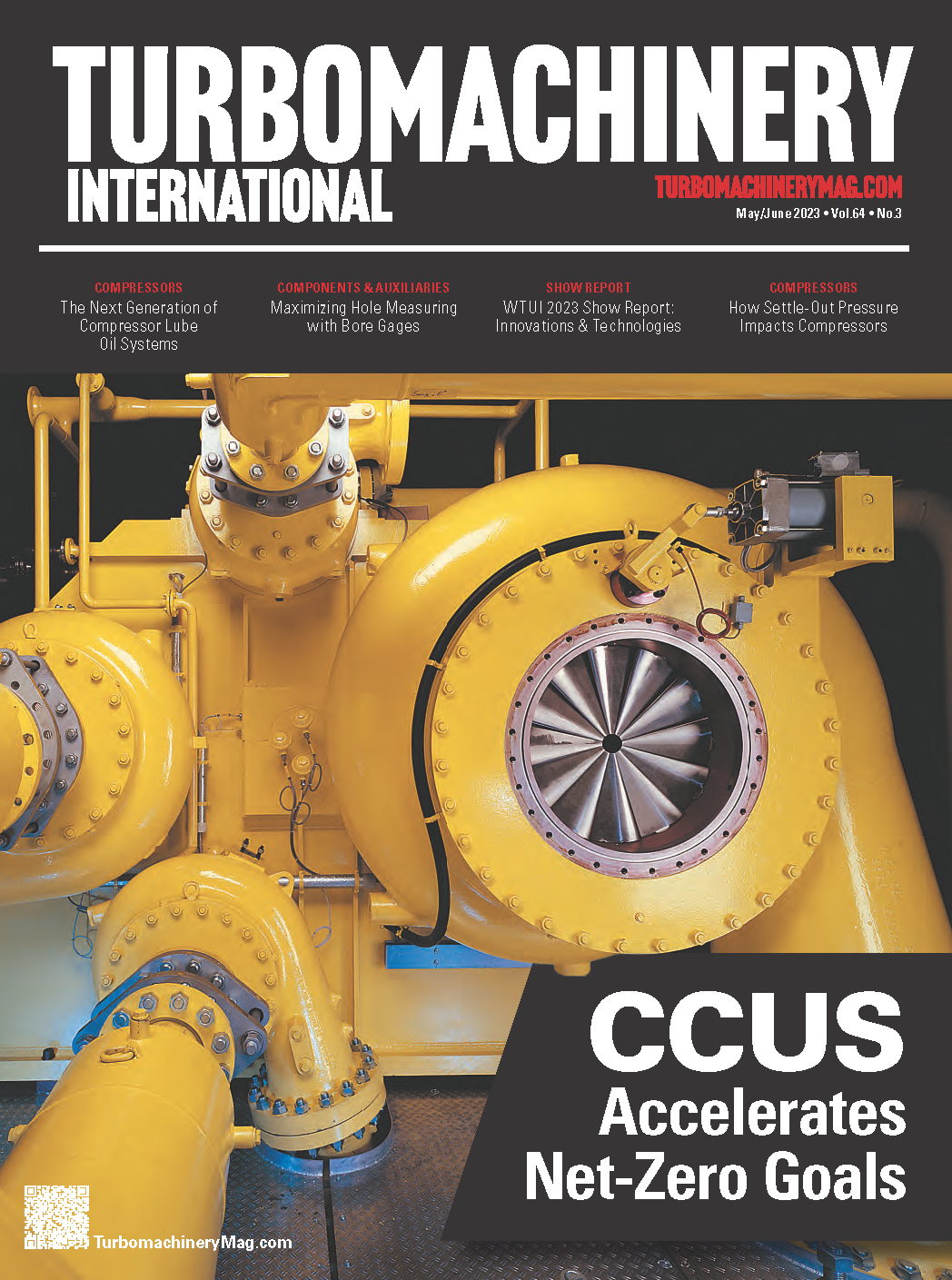Turbo Tips: Advantages & Disadvantages of mVSDs for Turbomachinery
Knowing how and when to select an mVSD is important in the turbomachinery industry.

Mechanical variable speed drives (mVSDs) are sometimes used for turbomachinery, particularly in the medium-power rating range. And although the use of mVSDs is not widespread in the industry, knowing whether to select an mVSD or more accepted variable speed options, such as electrical VSD or steam turbine drivers, is important.
ADVANTAGES AND DISADVANTAGES OF MVSDS
An mVSD could be a cost-effective and compact alternative to an electric VSD system (or similar) depending on the application and should be determined on a case-by-case basis. However, mVSD systems can be difficult to properly model and predict. mVSD systems are often looked at as unknowns and black boxes by engineers and operators—even some machinery experts are unfamiliar with them.
MVSDS & FLUID COUPLINGS
The majority of mVSDs have been based on hydraulic concepts or use devices based on hydraulic concepts. The fluid-coupling, or hydraulic-coupling, section is a hydrodynamic device used to transmit mechanical power using properly selected oil as a medium. This device is usually responsible for the soft start, speed variation, and damping of mVSDs. Therefore, it plays a major role in its performance. In fact, many mVSDs consist of two parts: a fluid coupling (or hydraulic coupling) and a gear unit; the gear unit only increases the speed (fixed ratio), and the fluid coupling acts as soft starter, damping device, and speed adjuster. This duo increases and adjusts the speed of a fixed speed driver (usually a fixed speed electric motor) to match the high speed needed for turbomachinery, such as a turbocompressor or pump. In other words, the fluid coupling is the device that actually changes or adjusts the speed as the gear unit, often a planetary gear unit, is just a fixed ratio gear system.
The housing in a fluid coupling is an oil-tight compartment that contains oil, an oil pumping impeller, and an oil turbine wheel. There are seals around the input and outlet shafts that are connected to the oil pumping impeller and oil turbine wheel, respectively.
The oil pumping impeller is a driving impeller that is rotated by the input shaft; depending on the design of the device, this shaft is directly driven by the driver or driven through a gear unit. The impeller’s motion imparts both outwards linear and rotational motion to the oil. The oil, which is a carefully selected hydraulic oil, is directed by the pumping impeller. This impeller forces the flow of oil in the direction of the turbine wheel. This mechanism provides a soft-start capability because the input and output shafts are only related to each other through the hydrodynamic action of the oil. Also, by regulating and changing the direction and flow of the oil, load and speed variation can be achieved. In this way, the mVSD starts the operation at small loads regardless of the heavy load on the driven side, such as heavy inertia of the driven turbomachinery.
There are two critical facts: First, a fluid coupling cannot achieve 100% power transmission efficiency because of slippage and losses that occur. Some power is always lost in fluid friction and turbulence, and some is dissipated as heat. Like other hydrodynamic devices, the efficiency tends to increase gradually with increasing scale, as measured by Reynolds number. In other words, small-scale fluid couplings offer relatively low efficiencies.
Second, a relatively low efficiency should be expected when operating at part-load because some adjustments in oil flow and direction are involved, resulting in more losses in turbulence, friction, etc. In fact, more work is wasted in a fluid coupling when the turbomachinery is operating at lower loads or below rated speeds. At part-load, efficiency is relatively low compared to other VSD technologies, such as electrical VSDs, or variable speed drivers such as steam turbines.
As a fluid coupling operates kinetically, low viscosity fluids may be preferred, but other practical aspects should also be considered. Increasing the density of the fluid increases the amount of torque that can be transmitted at a given input speed. Also, these fluids, much like other oils, are subject to changes in viscosity with temperature changes. This leads to a change in power transmission performance. Therefore, oil with optimum viscosity and a high viscosity index should be used. Generally, oil for any mVSD or fluid coupling should be selected after careful analysis and after considering all aspects of operation, reliability, and performance.
AREAS OF CONCERN
There are some unique alignment procedures for some mVSDs, as many systems use complex gear units such as planetary gears. Even for a simple gear unit, alignment is a challenge, and even more so with a complex mVSD system.
mVSD systems, particularly hydrodynamic torque converters, require a large amount of oil for commissioning and operation. As such, the mVSD manufacturer should provide special oil. Further, the main oil pump is often shaft-driven and should be sized properly to handle operational situations such as start-up, emergency shutdown, possible faults, etc. There should also be a full-sized second start-up and stand-by oil pump. Sometimes, a rundown tank or an (third) emergency DC electric motor-driven backup oil pump system could be required.
A combined oil system with other equipment in the train is a compact option for some applications and is facilitated between the mVSD manufacturer and other turbomachinery vendors.
Overall, mVSDs are a good solution.A careful evaluation is the key to selecting the best variable speed drive system for each turbomachine.
Amin Almasi is a Chartered Professional Engineer in Australia and the U.K. (M.Sc. and B.Sc. in mechanical engineering). He is a senior consultant specializing in rotating equipment, condition monitoring and reliability.
